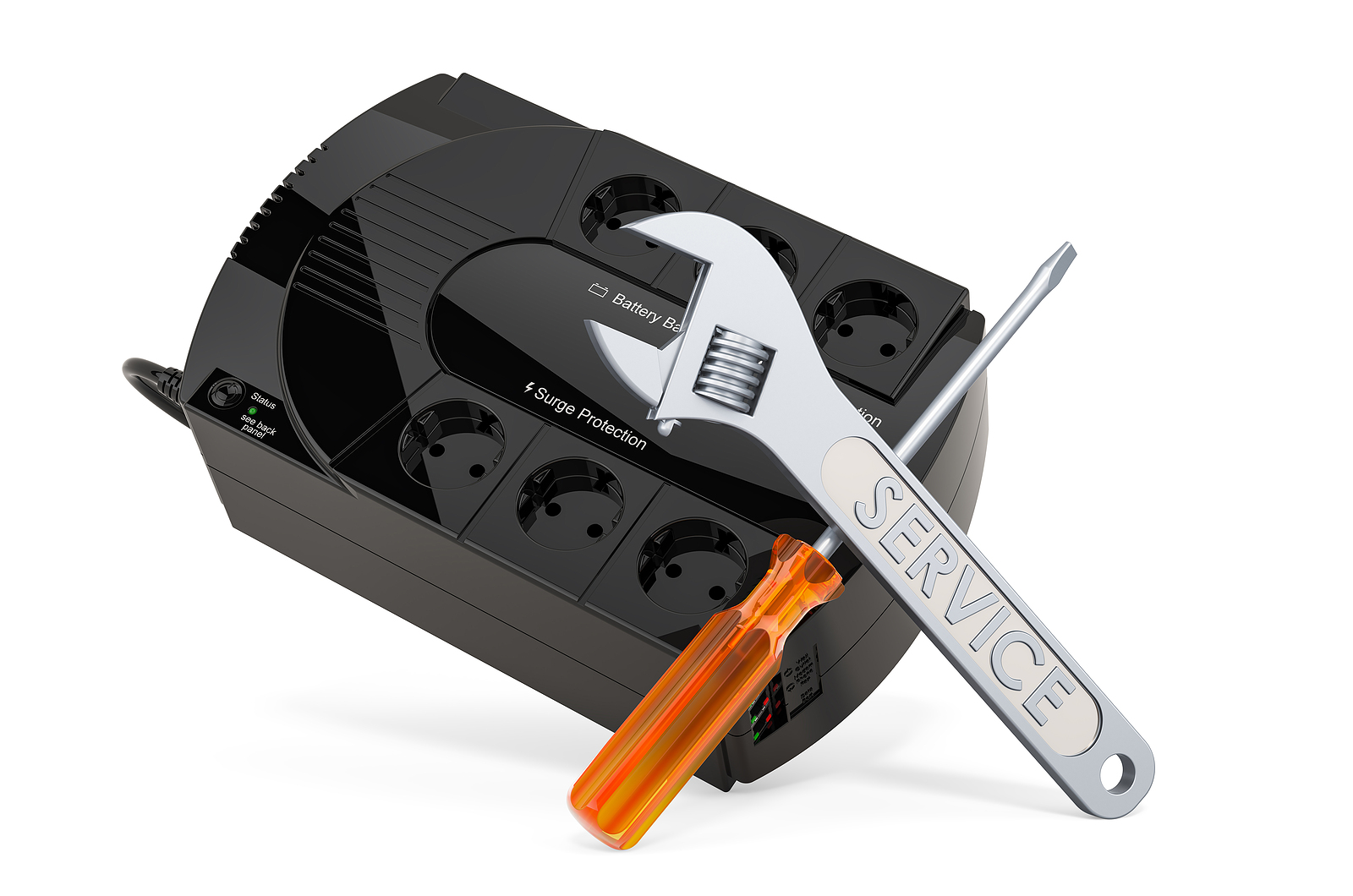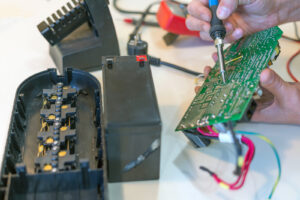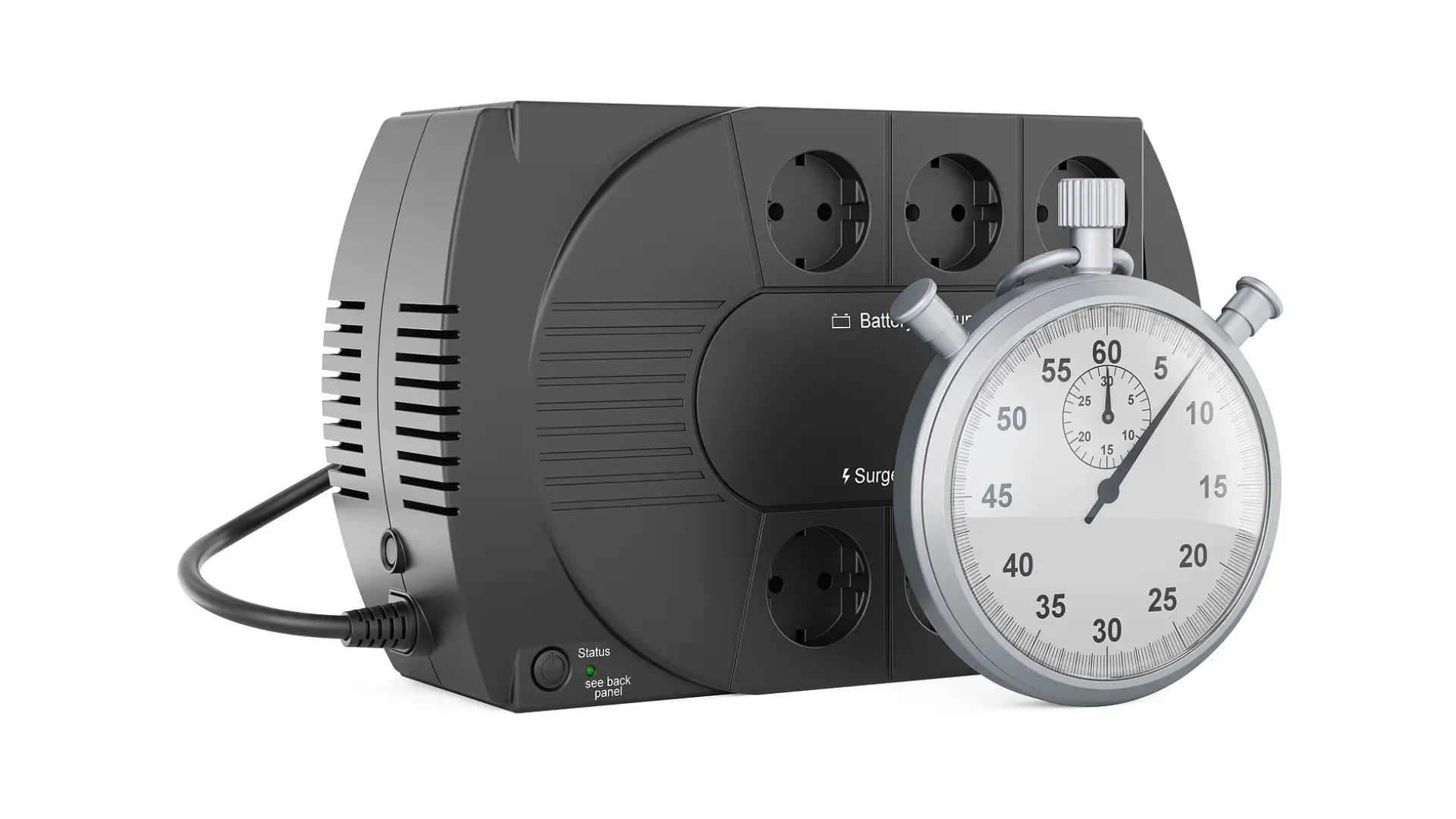
Uninterruptible Power Supply Repair Services
In today's increasingly digital world, uninterrupted power supply (UPS) systems play a crucial role in ensuring that businesses and individuals can continue to operate seamlessly, even during power outages. However, like any electrical equipment, UPS systems can develop issues over time, potentially leaving you in the dark when you need them the most. That's where uninterruptible power supply repair services come into play.
In this guide, we'll delve into all aspects of uninterruptible power supply repair services. From understanding what a UPS is and why it's important to recognizing common UPS issues and selecting the right repair service, we've got you covered. Let's dive in!
What is an Uninterruptible Power Supply (UPS)?
Definition and Purpose of a UPS
An Uninterruptible Power Supply (UPS) is an essential electrical device designed to safeguard critical equipment and systems by supplying uninterrupted power in the event of a main power source failure. Its primary purpose is to act as a safeguarding intermediary, ensuring a seamless and consistent power supply to protect against disruptions, voltage fluctuations, and blackouts.
UPS systems are an integral part of various sectors, including data centers, where they play a crucial role in preventing data loss and system downtime during power outages. In healthcare settings, UPS units are deployed to ensure the continuous operation of life-saving medical equipment, such as ventilators and monitoring devices. Similarly, businesses rely on UPS systems to safeguard their operations, preventing loss of data and productivity during power disturbances.
Types of UPS Systems
There are several types of UPS systems, each designed to cater to specific needs:
- Offline/Standby UPS: These UPS systems switch to battery power when they detect a power outage, making them suitable for protecting home computers and small electronics.
- Line-Interactive UPS: These UPS systems provide automatic voltage regulation to protect against power fluctuations. They are commonly used in small to medium-sized businesses.
- Online/Double-Conversion UPS: These UPS systems provide the highest level of protection, as they continuously convert incoming AC power to DC and then back to AC power. They are ideal for critical applications where downtime is not an option.
Why UPS Systems Are Vital

Uninterruptible Power Supply (UPS) systems play a pivotal role in ensuring the reliability and resilience of various critical operations across different sectors. Here are several key reasons why UPS systems are indispensable:
Data Protection
In the digital age, data is often a company's most valuable asset. UPS systems serve as a vital safety net in data centers by providing backup power when the primary power source fails unexpectedly. This backup power allows data center operators to initiate controlled shutdown procedures for servers and storage systems, mitigating the risk of data loss and corruption. Furthermore, UPS systems help maintain the integrity of transactional databases and safeguard sensitive information, which is especially critical in sectors like finance and healthcare.
Business Continuity
The financial consequences of downtime can be staggering for businesses. Whether it's a retail store, a manufacturing facility, or an e-commerce platform, any interruption in operations can lead to substantial revenue losses, damage to reputation, and customer dissatisfaction. UPS systems step in as a critical lifeline during power disruptions, ensuring that essential equipment such as point-of-sale systems, communication infrastructure, and production machinery continues to function seamlessly. This uninterrupted operation allows businesses to maintain customer service, fulfill orders, and uphold their commitments, even in adverse conditions.
Equipment Protection
Modern electronic equipment is highly sensitive to voltage fluctuations, surges, and abrupt power interruptions. UPS systems act as guardians, shielding valuable and delicate electronic devices from potential harm. By stabilizing voltage and providing consistent power, UPS units extend the lifespan of equipment, reduce the risk of premature failure, and contribute to cost savings by minimizing the need for frequent repairs or replacements. This protection is not limited to data center servers but also extends to office computers, network switches, telecommunications gear, and any equipment reliant on a stable power supply.
Safety and Compliance
In certain industries, safety and regulatory compliance are paramount. UPS systems ensure the continuous operation of critical safety equipment, such as emergency lighting, fire alarms, and security systems. Compliance with safety standards and regulations is non-negotiable in sectors like healthcare, where patient care and safety depend on uninterrupted power.
Energy Efficiency
Many modern UPS systems are designed with energy-efficient features, such as variable speed fans and intelligent load management. This not only reduces energy consumption but also lowers operational costs and contributes to environmental sustainability.
Common UPS Issues and Their Management
Even the most robust Uninterruptible Power Supply (UPS) systems can encounter various challenges as they age and operate. Understanding these common problems is essential not only for timely diagnosis and repair but also for ensuring the sustained functionality of your critical equipment. Here, we delve into these common UPS issues and offer insights into their resolution and prevention:
- Power Failures:
- Root Causes: Power failures can occur due to a myriad of factors, including grid failures, overloads on electrical circuits, or battery depletion.
- Resolution: Regular testing and diligent monitoring are crucial for detecting and addressing power failure issues promptly. Installing additional backup power sources, such as generators, can provide added security against prolonged outages.
- Battery Problems:
- Root Causes: The battery is the heart of a UPS system, but it can degrade over time, leading to reduced backup times and potential system failures.
- Resolution: Scheduled battery replacement is a common UPS maintenance practice. Conducting routine battery capacity tests helps identify aging batteries that require replacement before they compromise system performance.
- Overheating:
- Root Causes: UPS systems generate heat during operation, and inadequate ventilation can result in overheating. Prolonged exposure to high temperatures can damage the UPS system itself and the connected equipment.
- Resolution: Proper placement and cooling measures are vital to prevent overheating. Utilizing cooling fans, ensuring adequate airflow, and monitoring temperature levels can help maintain optimal UPS operation.
- Electrical Noise:
- Root Causes: Electrical noise, such as voltage spikes and surges, poses a significant risk to the sensitive electronics connected to a UPS system. A malfunctioning UPS may fail to filter out these disturbances effectively, endangering your equipment.
- Resolution: Regularly inspect the UPS system to ensure that it is effectively filtering out electrical noise. Consider installing additional surge protectors and voltage regulators to bolster the protection of your critical equipment.
- Routine Maintenance:
- Importance: Routine maintenance is often underestimated but is paramount for the long-term health of your UPS system.
- Resolution: Establish a comprehensive maintenance schedule that includes regular inspections, thorough cleaning, and systematic testing. Proactive maintenance can identify potential issues before they escalate into major problems, thereby enhancing the reliability of your UPS system.
The Importance of UPS Repair Services
The significance of UPS (Uninterruptible Power Supply) repair services extends beyond mere maintenance; it is a fundamental component of ensuring the stability, security, and cost-effectiveness of various critical operations. Here, we delve into the multifaceted importance of these services:
Avoiding Downtime
Downtime, whether brief or prolonged, can inflict significant financial and operational harm on businesses, particularly those deeply reliant on digital infrastructure and real-time operations. UPS repair services function as a robust defense mechanism against costly disruptions. By swiftly addressing issues and maintaining UPS systems, these services ensure that your critical systems remain online even in the face of unforeseen power interruptions. This capability is especially critical in sectors like e-commerce, finance, and healthcare, where continuous operation is non-negotiable.
Protecting Equipment
Beyond their primary function of safeguarding against power interruptions, UPS systems serve as frontline protectors against electrical anomalies. They filter out electrical noise, spikes, and surges while providing stable voltage regulation. This comprehensive protection not only prevents immediate damage but also extends the overall lifespan of your connected equipment. By reducing the risk of equipment failure, UPS repair services contribute to long-term cost savings and operational efficiency.
Saving Money in the Long Run
The economics of UPS repair versus replacement are often advantageous. Many businesses rely on higher-end UPS models that are designed for longevity and robust performance. In such cases, opting for repair services when issues arise can prove to be significantly more cost-effective than a full replacement. These services encompass diagnostics, component replacement, and performance optimization, ensuring that your UPS system continues to meet or exceed its original specifications.
Environmental Responsibility
The importance of sustainable practices in today's world cannot be overstated. Repairing rather than replacing UPS systems aligns with environmental responsibility. By extending the lifecycle of these devices through expert repair services, businesses contribute to reducing electronic waste and minimizing their carbon footprint.
Factors to Consider when Choosing the Right Uninterruptible Power Supply Repair Service

When faced with the task of choosing the right UPS repair service provider, several essential factors should guide your decision. These factors encompass a range of critical aspects that ensure the reliability and effectiveness of the service:
Experience and Expertise
A paramount consideration when selecting a UPS repair service is the provider's experience and expertise in the field. Seek out a service with a proven track record in UPS repair, as experienced technicians are more likely to possess the knowledge and skills required to accurately diagnose and rectify issues. Look for qualifications, certifications, and a history of successfully resolved UPS-related problems.
Response Time
The timeliness of response is of utmost importance, particularly in situations demanding urgent attention. Inquire about the provider's response time for emergency situations and their availability for critical repairs. A service with a swift response time can significantly reduce downtime and minimize the potential impact of power-related disruptions on your operations.
Reputation
The reputation of the UPS repair service is an excellent indicator of their reliability and customer satisfaction. Utilize online resources, such as reviews and testimonials, to gauge their standing in the industry. Positive feedback from previous clients serves as an encouraging sign of their competence and commitment to delivering quality service. Additionally, consider seeking recommendations from industry peers and colleagues who may have firsthand experience with the service provider.
Comprehensive Services
Evaluate the range of services offered by the repair service. Beyond standard repairs, consider whether they provide proactive maintenance, diagnostics, and performance optimization. A service that offers a comprehensive suite of services can help you not only address immediate issues but also prevent future UPS problems, ensuring the long-term health of your critical power infrastructure.
Quality of Replacement Parts
Inquire about the quality of replacement parts used by the service provider. High-quality, genuine parts can significantly impact the reliability and performance of your UPS system. Ensure that the repair service sources and installs reputable components to maintain the integrity of your equipment.
Cost Transparency
Transparent pricing and cost estimation are essential for budgetary planning. Seek a service provider that provides clear and upfront cost information, including potential additional charges for parts and labor. Avoid surprises in your repair expenses by choosing a provider with transparent pricing practices.
Emergency Support and Maintenance Contracts
Assess whether the repair service offers emergency support and maintenance contracts. These agreements can provide you with peace of mind by ensuring prompt assistance during critical situations and regular check-ups to proactively identify and address potential issues.
DIY vs Professional Repair
When faced with a UPS (Uninterruptible Power Supply) malfunction, the decision between attempting a DIY repair or enlisting professional help hinges on several crucial factors, including the nature of the issue and your level of expertise. Below, we provide an in-depth guide to assist you in making an informed choice:
When to Consider a DIY Approach:
- Minor Issues: For relatively minor UPS issues, such as routine battery replacements, general cleaning, or straightforward troubleshooting like checking connections, a DIY approach can be viable. These tasks often require minimal technical expertise and can be safely performed with the help of user manuals and basic tools.
- Technical Proficiency: If you possess a certain level of technical proficiency, have experience with electronics, and are confident in your skills, you may opt for DIY repairs. However, it's essential to accurately assess your capabilities to avoid exacerbating the problem.
- Accessible Resources: The availability of replacement parts and comprehensive online resources can enhance your chances of successful DIY repair. Ensure that you can readily obtain the necessary components and access reliable instructional materials.
When to Engage Professional Repair Services:
- Critical UPS Issues: When confronted with significant UPS malfunctions, such as complex circuitry failures, internal component breakdowns, or extensive electrical problems, it is strongly advisable to hire a professional repair service. These issues often require specialized knowledge, diagnostic equipment, and expertise beyond the scope of most DIY enthusiasts.
- Uncertainty about the Problem: If you are uncertain about the root cause of the UPS malfunction or lack the necessary diagnostic tools, seeking professional assistance is the safest course of action. Professionals can accurately identify underlying issues and implement targeted solutions.
- Risk of Further Damage: Attempting complex UPS repairs without the requisite knowledge and skills carries the risk of causing further damage. This can ultimately lead to increased repair costs or even render the UPS irreparable.
- Warranty Considerations: If your UPS is under warranty, DIY repairs may void the warranty. Engaging a certified professional ensures that any necessary repairs are conducted in a manner that preserves the warranty coverage.
- Critical Operations: For businesses and individuals reliant on continuous, uninterrupted power supply, downtime is a significant concern. Professional repair services offer expedited solutions, reducing the duration of disruptions and minimizing the impact on operations.
Cost of UPS Repair
The cost of UPS (Uninterruptible Power Supply) repair is influenced by a multitude of variables, making it a dynamic and often unpredictable expense. Delving into these factors can provide clarity on what to expect when considering UPS repair:
Severity of the Issue
The nature and extent of the UPS problem are pivotal in determining the cost. Major issues that demand extensive repairs, intricate diagnostics, or the replacement of complex internal components will naturally incur higher costs than minor, easily resolvable concerns.
Replacement Parts
Replacement parts play a substantial role in the overall repair expense. The cost of components like batteries, circuit boards, or power modules can vary significantly based on their quality, brand, and availability. High-quality, genuine parts may be pricier but can contribute to the longevity and reliability of the UPS.
Labor Costs
Labor costs for UPS repair services can vary based on several factors, including the expertise of the technicians, the geographic location, and the complexity of the repair. Understanding how labor charges are calculated by your chosen service provider is essential for budgeting and cost transparency.
Emergency Service
If you require UPS repair services outside of regular business hours, such as during evenings, weekends, or holidays, you can expect to pay a premium for emergency service. While this may be necessary to minimize downtime in critical situations, it does come with an added cost.
Warranty Coverage
If your UPS system is still under warranty, some repair costs may be covered by the manufacturer. It's crucial to review the terms of the warranty to determine what repairs are eligible for coverage. Engaging a certified service provider can help ensure warranty compliance.
Preventive Maintenance
Investing in routine preventive maintenance can mitigate the risk of major UPS failures and reduce the overall cost of repairs in the long run. By identifying and addressing potential issues before they escalate, preventive maintenance helps maintain the UPS system's health and prolong its lifespan.
Service Provider Selection
The choice of UPS repair service provider can also impact the cost. Different providers may offer varying pricing structures, service levels, and guarantees. Evaluating multiple options and obtaining quotes can help you find the most cost-effective solution without compromising on quality.
Age and Model of the UPS
The age and model of your UPS can influence repair costs. Older models may be more challenging to source replacement parts for, potentially driving up costs. Additionally, newer UPS systems with advanced features may have more complex components that require specialized expertise for repairs.
Conclusion
Uninterruptible Power Supply systems are vital for maintaining continuous operations in today's technology-driven world. Understanding common UPS issues, the importance of repair services, and how to choose the right service provider can help you keep your critical equipment protected.
Remember that UPS maintenance is not just a reactive measure; preventive maintenance is equally important to minimize the risk of costly failures. By following the guidelines in this guide, you can ensure that your UPS systems remain reliable and efficient.
In case you encounter UPS issues, don't hesitate to reach out to a reputable UPS repair service to get your systems back up and running, safeguarding your operations and investments.
Sources
https://www.usaid.gov/energy/powering-health/system-components/uninterruptible-power-supplies
https://www.energy.gov/femp/purchasing-energy-efficient-uninterruptible-power-supplies
continue reading
Related Posts
Uninterruptable Power Supplies In today's world, where technology keeps us […]
Uninterruptible Power Supply For Laptop In today's fast-paced digital world, […]
Small Uninterruptible Power Supply In today's digital age, where connectivity […]



